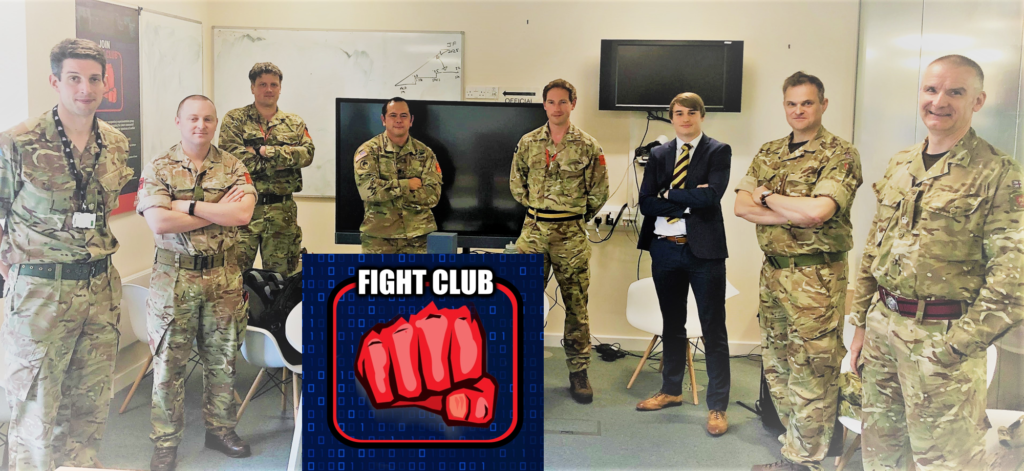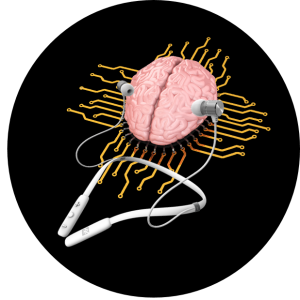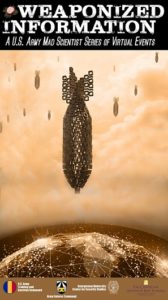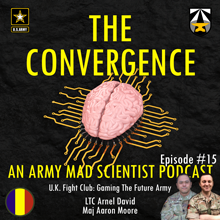[Editor’s Note: Mad Scientist Laboratory is pleased to announce our latest episode of “The Convergence” podcast, featuring guest bloggers LTC Arnel David, U.S. Army, and Major Aaron Moore, British Army, discussing Fight Club and the nascent revolution in Professional Military Education. Please note that this podcast and several of the embedded links below are best accessed via a non-DoD network due to network priorities for teleworking — Enjoy!]
 In this latest episode of “The Convergence,” we talk with guest bloggers LTC Arnel David, U.S. Army, and Major Aaron Moore, British Army, who recently penned Fight Club Prepares Lt Col Maddie Novák for Cross-Dimension Manoeuvre — describing the nascent revolution in Professional Military Education (PME) wrought by the convergence of Artificial Intelligence (AI), digital
In this latest episode of “The Convergence,” we talk with guest bloggers LTC Arnel David, U.S. Army, and Major Aaron Moore, British Army, who recently penned Fight Club Prepares Lt Col Maddie Novák for Cross-Dimension Manoeuvre — describing the nascent revolution in Professional Military Education (PME) wrought by the convergence of Artificial Intelligence (AI), digital  assistants, gaming, and Augmented and Virtual Reality (AR/VR). Using storytelling and backcasting, LTC David and Maj Moore vividly described how Leaders will seek out and leverage these technologies to hone their warfighting skills across all dimensions, enabling them to “think, fight, learn, repeat” and enhance their versatility as innovators on the battlefield.
assistants, gaming, and Augmented and Virtual Reality (AR/VR). Using storytelling and backcasting, LTC David and Maj Moore vividly described how Leaders will seek out and leverage these technologies to hone their warfighting skills across all dimensions, enabling them to “think, fight, learn, repeat” and enhance their versatility as innovators on the battlefield.
 In today’s podcast, LTC David and Major Moore further discuss the convergence of technology and wargaming that resulted in Fight Club and how it is transforming Leader development:
In today’s podcast, LTC David and Major Moore further discuss the convergence of technology and wargaming that resulted in Fight Club and how it is transforming Leader development:
-
-
- Fight Club designs realistic wargames to remove hierarchies and encourage players to attempt innovative solutions, while also creating a safe environment to fail repeatedly and learn from mistakes.
-
-
-
- These games replicate expensive training through a virtual setting, and harness younger generations’ aptitude for technology and virtual networking. The virtual setting also allows Fight Club to better connect players of different backgrounds, making the gaming more available and accessible.
-
-
-
- The DoD should implement more gaming in training. Wargaming can be effective in more frequent, smaller-scale games to increase Service members’ exposure to these types of decision making.
-
-
-
- Wargaming helps the Army and its international partners increase interoperability without having to run large-scale, time-compressed exercises.
-
-
-
- Gaming will allow the military to push innovation and will continue to attract younger generations who thrive in interactive environments. The competitive nature of gaming can inspire action and push people to develop more creative and effective solutions.

Group Photo of Fight Club Warrior Council, with Major Aaron Moore (2nd from left) and LTC Arnel David (4th from left) -

Stay tuned to the Mad Scientist Laboratory for our next podcast with Samantha North, disinformation analyst and doctoral candidate, discussing political tribalism online and susceptibility to disinformation on 6 Aug 2020!
If you enjoyed this post, check out the following related posts:
“Top Ten” Takeaways from the Learning in 2050 Conference
New Skills Required to Compete & Win in the Future Operational Environment
The Future of Learning: Personalized, Continuous, and Accelerated
TRADOC 2028 (and TRADOC 2028 video [view via a non-DoD network])
Setting the Army for the Future (Parts II and III)
 >>> REMINDER 1: The Mad Scientist Initiative will facilitate the next webinar in our Weaponized Information Virtual Events series next Wednesday, 29 July 2020:
>>> REMINDER 1: The Mad Scientist Initiative will facilitate the next webinar in our Weaponized Information Virtual Events series next Wednesday, 29 July 2020:
Disinformation and Narrative Warfare, featuring Dr. Ajit Maan and Mr. Paul Cobaugh of Narrative Strategies.
In order to participate in this virtual webinar, you must first register here [via a non-DoD network].
>>> REMINDER 2: If you missed participating in any of the previous Mad Scientist Weaponized Information Virtual Events — no worries! You can watch them again here [via a non-DoD network] and explore all of the associated content (presenter biographies, slide decks, scenarios, and notes from each of the presentations) here.




Great news. Thanks!